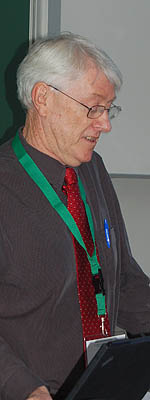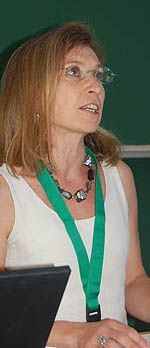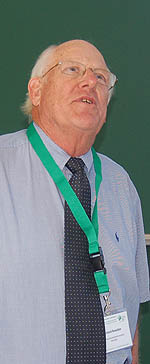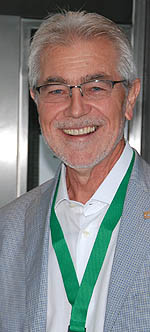Ray Ison: Systems practice in a climate-change world

Intellectual and methodological tensions evident with the farming systems research community in the early 1980s persist to the present moment. These are symptommatic of the broader Systems intellectual field which is characterized by epistemological and methodological confusion and unfortunate cultural silos. These tensions create practical difficulties. In the context of human-induced climate change there is both a need and an opportunity for Systems as a field of inquiry and practice to re-invent itself in the service of maintaining or enhancing the quality of the human-biosphere relationship understood as a co-evolutionary dynamic. Following the arguments of my recent book I claim this will require (i) appreciating the nature and scope of the contribution that Systems understandings and practices have already made; (ii) fostering the circumstances for epistemological awareness and researcher responsibility; (iii) developing reflexive praxis skills addressing the question ‘what do we do when we do what we do? and (iv) recognizing and addressing factors that constrain the flourishing of Systems as a domain of inquiry and practice.
Video recording of the presentation (Flash, Lecturnity Webplayer)
Powerpoint presentation
Graphic of schools of system thinking
Ray Ison's blog
Ray Ison's website
Book: Systems practice: How to act in a climate-change world
Marianne Cerf: Looking back and forward - Dynamics of the French farming system research

During the 1996 IFSA conference, Bernard Hubert and Jacques Brossier stated that the French farming research emerged at the end of the 1970s as a recognized research field within institutions such as INRA. In this presentation, we will start by recalling some of the main traits leading to the institutionalization of this field of research. We will then retrace the evolution within this field by pointing out the main themes which have been addressed by the French farming system research and by highlighting some of the main findings and advances the French farming system research community has contributed to. We will then open a discussion about the advantages and the drawbacks of the institutionalization of farming system research within INRA and the future of farming system research in France.
Video recording of the presentation (Flash, Lecturnity Webplayer)
PowerPoint presentation
INRA-SAD Website
Richard Bawden: From transforming *systems* to *transforming* systems - And back again?

Over the course of the four decades of my professional career, I have journeyed through three ‘systems ages’ or waves of development as they have been called. My initial focus was on learning to transform ‘hard’ systems ‘out there in the world’ – with farming systems as a primary concern. After a decade or so of that, I turned my attention to transforming issues of critical concern ‘out there’ through the use of soft and critical systems methodologies. Then I discovered that, in order to be effective at transformations of the ‘hard’ material and social world and at systemic transformations of critical issues within it, I needed, as an essential pre-requisite, to first transform my own way of ‘seeing’ that world – my own ways of coming to know, it as it were. I have come to conclude that before we can transform any other system of interest in the material and social worlds, we need first to understand and develop our own intellectual and moral transforming system.
Video recording of the presentation (Flash, Lecturnity Webplayer)
PowerPoint presentation
Graphic 'Systems movements in agriculture'
Website Systemic Development Institute
Hans R. Herren: IIASTD - Quo vadis?

The IAASTD report series "Agriculture at a Crossroads" has suggested two important aspects regarding the future of agriculture: There is a need to change the production paradigm from crop and animal yields and productivity to sustainable "system and farm" productivity increases, while paying attention to the small scale and family farmers, gender, health and nutrition (society), biodiversity, natural resources use (environment), as well as rural livelihoods and inequity (economy). It was further suggested that any future development in agricultural knowledge, science and technology (AKST) do fully embrace its multi-functionality, and in particular pay attention to the ecosystem services, food quality and diversity, and the links between hunger and poverty. Since the Plenary at which 59 countries have signed on the key findings and options for action, what has been the follow-up? This was discussed at the closing session, as were the next steps to increase the momentum towards making the needed changes in AKSTs.
Video recording of the presentation (Flash, Lecturnity Webplayer)
PowerPoint presentation
Millenium Institute website
IAASTD website
